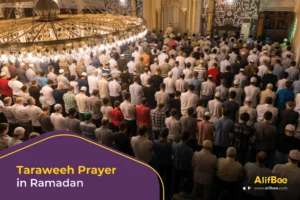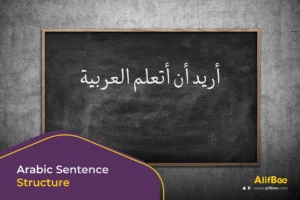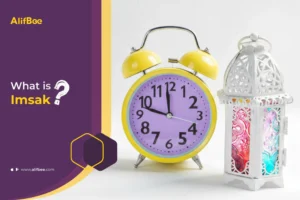Similar Arabic Pairs
One of the most important things to learn as you begin studying Arabic is recognizing similar Arabic word pairs. These pairs may look alike, but they carry subtle differences. Using them correctly can greatly enhance your accuracy in both speaking and writing.
Let’s look at 10 similar Arabic pairs, explore their meanings, and review examples and expressions that use them.
دُرج
دَرَج
Durj
Daraj
Drawer
Stairs
1. دُرْج (Durj): Drawer
Durj refers to a drawer—a compartment within furniture where items are stored. In Arabic, Durj is used in expressions like:- دُرْج المكتب (Durj al-maktab) — Desk drawer
- فتح الدُرْج (Fataḥ al-durj) — Opened the drawer
2. دَرَج (Daraj): Stairs
Daraj means stairs or steps, used to describe the parts of a staircase or steps that take someone from one level to another. It is often used in contexts like:- صعود الدَرَج (Ṣuʻūd al-daraj) — Climbing the stairs
- نَزَل الدَرَج (Nazzal al-daraj) — Descended the stairs
عِلم
عَلَم
ʻIlm
ʻAlam
Knowledge and Science
Flag
1. عِلم (ʻIlm): Knowledge and Science
ʻIlm means knowledge or science. It represents learning, study, and the pursuit of understanding. In Arabic, you’ll find ʻIlm used in terms like:- عِلم الطب (ʻIlm al-ṭibb) — Medical science
- عِلم النفس (ʻIlm al-nafs) — Psychology
2. عَلَم (ʻAlam): Flag and Symbol of Identity
The word ʻAlam refers to a flag or banner—a symbol of pride, identity, and unity. Whether representing a nation or a cause, ʻAlam is about shared identity. Examples include:- عَلَم الدولة (ʻAlam al-dawla) — National flag
- رَفَع العَلَم (Rafaʻ al-ʻalam) — Raised the flag
مُهْر
مَهْر
Muhr
Mahr
Pony
Dowry
1. مُهْر (Muhr): Pony
Muhr means a young horse or pony. It’s used specifically to refer to a small or young horse, often emphasizing the animal’s youthful energy and size. In Arabic, Muhr is associated with horses in terms like:- مُهْر صغير (Muhr ṣaghīr) — Little pony
- تربية المُهُور (Tarbiya al-muhūr) — Raising ponies
2. مَهْر (Mahr): Dowry
Mahr means dowry, referring to the financial gift a groom gives to the bride upon marriage. It’s an important cultural and legal concept in many Arabic-speaking countries that symbolizes commitment and respect. Mahr appears in expressions like:- مَهْر العروس (Mahr al-ʻarūs) — Bride’s dowry
- تقديم المَهْر (Taqdīm al-mahr) — Offering the dowry
قَدَر
قِدْر
Qadar
Qidr
Fate
Pot
1. قَدَر (Qadar): Fate or Destiny
Qadar translates to fate or destiny. It’s a significant word in Arabic that is used in religious and everyday contexts to convey that certain events are beyond human control. Examples include:- قَدَر الله (Qadar Allah) — The will of God
- قَبِل قَدَره (Qabila qadarihi) — Accepted his fate
2. قِدْر (Qidr): Pot
Qidr refers to a pot or cooking vessel. This is a practical, everyday word related to kitchenware, commonly used for cooking stews, soups, or other dishes. Qidr is found in contexts such as:- قِدْر الطهي (Qidr al-ṭahī) — Cooking pot
- وضَع الطعام في القِدْر (Waḍaʻa al-ṭaʻām fī al-qidr) — Put the food in the pot
رَغِبَ في
رَغِبَ عَن
Raghiba fī
Raghiba ʻan
To want something
To dislike something
1. رَغِبَ في (Raghiba fī): To Want or Desire Something
Raghiba fī means to want or desire something. This form of the verb conveys interest or attraction toward an object, goal, or activity. When using رَغِبَ في, you’re expressing positive feelings or a desire to obtain or achieve something. Examples include:- رَغِبَ في السفر (Raghiba fī al-safar) — Wanted to travel
- رَغِبَ في العمل الجديد (Raghiba fī al-ʻamal al-jadīd) — Desired the new job
2. رَغِبَ عَن (Raghiba ʻan): To Dislike or Avoid Something
Raghiba ʻan, on the other hand, means to dislike, avoid, or turn away from something. When رَغِبَ is followed by عَن, it expresses aversion or a deliberate choice to distance oneself from something. It conveys the idea of disinterest or even dislike. Examples include:- رَغِبَ عَن الحياة الصاخبة (Raghiba ʻan al-ḥayāt al-ṣākhba) — Avoided the busy life
- رَغِبَ عَن الطعام الحار (Raghiba ʻan al-ṭaʻām al-ḥār) — Disliked spicy food
جَدّ
جِدّ
Jadd
Jidd
Grandfather
Seriousness
1. جَدّ (Jadd): Grandfather
Jadd means “grandfather” in Arabic. This is a common familial term, used to refer to one’s paternal or maternal grandfather. Here are some examples:- جَدِّي (Jaddī) — My grandfather
- جَدّ كبير (Jadd kabīr) — Great-grandfather
2. جِدّ (Jidd): Seriousness
Jidd, on the other hand, means “seriousness” or “earnestness.” This term is often used to describe a sincere, committed approach to something or to highlight a lack of humor or lightheartedness in a given situation. It conveys focus and dedication. Examples of this word include:- الجِدّ في العمل (al-Jidd fī al-ʻamal) — Seriousness at work
- تكلم بِجِدّ (Takallam bi-jidd) — He spoke seriously
عَقَار
عَقَّار
ʻAqār
ʻAqqār
Property - Real Estate
Drug
1. عَقَار (ʻAqār): Property
ʻAqār means “property” or “real estate” in Arabic. It generally refers to immovable assets, like land or buildings. This word is often used in legal and business contexts when discussing ownership, buying, or selling property. Examples include:- سوق العَقَار (Sūq al-ʻAqār) — Real estate market
- شراء العَقَار (Sharāʼ al-ʻAqār) — Property purchase
2. عَقَّار (ʻAqqār): Drug
ʻAqqār refers to “drug” or “medicine.” This term is typically used in medical contexts to denote pharmaceutical drugs, medicinal substances, or treatments. The emphasis on the doubled ق (qaf) sound marks it as distinct from ʻAqār. Here are a few examples:- عَقَّار طبي (ʻAqqār ṭibbī) — Medical drug
- تناول العَقَّار (Tanāwal al-ʻAqqār) — Took the drug/medicine
نَفِدَ
نَفَذَ
Nafida
Nafadha
To run out
Penetrate into
1. نَفَذَ (Nafadha): To Penetrate or Pass Through
Nafadha means “to penetrate,” “to pass through,” or “to pierce.” It suggests something moving through an object, barrier, or even a concept. This Arabic verb can apply to both tangible and abstract things, such as light penetrating a surface or a person achieving a goal despite obstacles. Examples include:- نَفَذَ السهم في الجدار (Nafadha al-sahm fī al-jidār) — The arrow penetrated the wall
- نَفَذَ القانون (Nafadha al-qānūn) — The law was enforced
2. نَفِدَ (Nafida): To Run Out or Be Depleted
Nafida means “to run out,” “to be depleted,” or “to be exhausted” (in terms of resources). This word is used when supplies, patience, or any finite resource has been used up entirely. It implies that something has reached its limit and no longer remains. Examples include:- نَفِدَ الماء (Nafida al-māʼ) — The water ran out
- نَفِدَ الصبر (Nafida al-ṣabr) — Patience ran out
غِذاء
غَداء
Ghidhāʼ
Ghadāʼ
Food
Lunch (Meal eaten around the middle of the day)
1. غَداء (Ghadāʼ): Lunch
Ghadāʼ specifically means “lunch,” referring to the midday meal. It’s part of daily life and often a central meal in many Arabic-speaking countries, commonly enjoyed in the early afternoon. Examples include:- وجبة الغَداء (Wajbat al-ghadāʼ) — Lunch meal
- تناول الغَداء (Tanāwal al-ghadāʼ) — Ate lunch
2. غِذاء (Ghidhāʼ): Food or Nourishment
Ghidhāʼ means “food” or “nourishment” in a broader sense. Unlike Ghadāʼ, which is limited to a specific meal, Ghidhāʼ can refer to any type of food or sustenance that provides nourishment. It is used in contexts related to health, nutrition, and general food intake. Examples include:- غِذاء صحي (Ghidhāʼ ṣaḥī) — Healthy food
- الحاجة إلى الغِذاء (Al-ḥāja ilā al-ghidhāʼ) — The need for food/nourishment
دَعوَى
دَعوَة
Daʻwá
Daʻwah
Lawsuit
Invitation
1. دَعْوَة (Daʻwah): Invitation
Daʻwah means “invitation” which refers to inviting someone to a gathering, event, or even to embrace a religious message. This Arabic word is often used for social occasions like weddings, parties, or any event where people are invited. Examples include:- دَعْوَة إلى حفل (Daʻwah ilā ḥafl) — Invitation to a party
- أرسل دَعْوَة (Arsala daʻwah) — Sent an invitation
2. دَعْوَى (Daʻwá): Lawsuit
Daʻwá refers to a lawsuit or legal claim. This term is used within the legal field to indicate a formal legal action taken in court, where one party seeks justice or remedy against another. Examples with this Arabic word include:- رَفَع دَعْوَى (Rafaʻa daʻwá) — Filed a lawsuit
- دَعْوَى قضائية (Daʻwá qaḍāʼīyah) — Judicial lawsuit
Final word
Mastering similar Arabic word pairs is a simple yet powerful way to build your language skills. By understanding these subtle differences, you can improve your accuracy and confidence in speaking and writing.
Keep practicing these pairs and look out for more as you continue learning Arabic—they’ll add depth to your understanding and help you communicate with greater clarity.
If you found this article useful, check Top 100 Common Words in Arabic .
And if you haven’t already, get our app to start learning and practicing Arabic with lots of fun activities!








